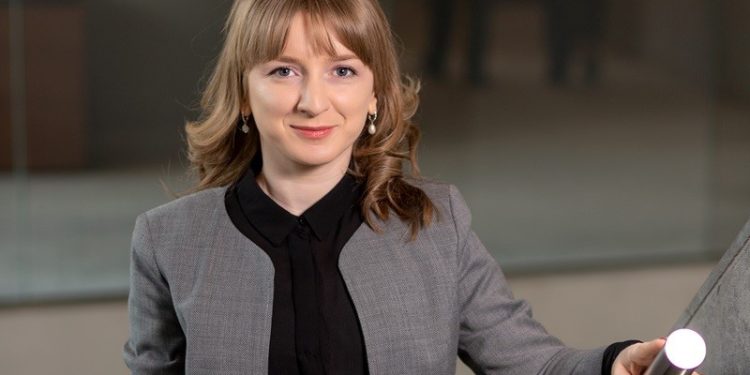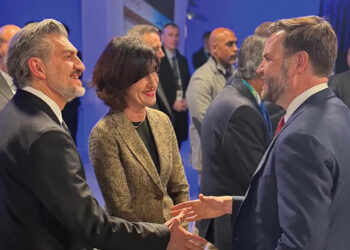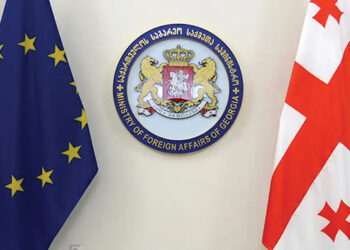Following the signing of the Association Agreement with the EU in 2014, alignment with the EU regulatory framework became a key driver of energy sector reforms in Georgia. The reforms have targeted various aspects of energy sector development, including renewable energy, energy efficiency, competitive markets, and protection of consumer rights.
One of the key issues of energy sector reform is the fight against energy poverty. The phenomenon, defined as the inability of households to access essential energy services and products, remains a major challenge in Georgia.
To learn more, GEORGIA TODAY interviewed Tutana Kvaratskhelia, a senior energy policy analyst and energy poverty researcher at the think tank World Experience for Georgia (WEG). WEG recently published a study on understanding energy poverty in Georgia.
Could you give us an overview of the reforms that have been implemented in the energy sector, including their objectives and impact on the Georgian population?
Georgia’s energy sector has undergone a significant transformation since the 1990s. We remember the days when electricity was available for only 3-4 hours a day, the energy infrastructure was deteriorating, and security and reliability of supply were a major concern.
As a result of the reforms implemented, the situation has gradually improved and, according to many assessments, Georgia now has a stable and reliable energy sector. However, challenges remain and efforts to address them are ongoing. Currently, the main framework for energy sector reforms is the Association Agreement with the European Union and membership in the Energy Community. Under these agreements, Georgia is working to transpose European directives and align its legal framework with EU legislation.
This process not only facilitates the country’s accession to the EU but also plays a crucial role in strengthening Georgia’s energy security. Reforms in this regard cover various aspects, including the development of renewable energy and energy efficiency, the establishment of competitive energy markets, the protection of consumer rights, etc. Reducing energy poverty and improving access to clean energy sources while ensuring affordability for the population is one of the key priorities of the reform agenda.
Could you please explain in more detail what energy poverty is, how it manifests itself in Georgia, and what the specific challenges for the population are?
Energy poverty is the lack of access to essential energy services required for human well-being and health. This includes not only electricity, but all forms of energy used by households for heating, cooking, and other daily needs. Research shows that inadequate heating and the use of polluting fuels and technologies are linked to a range of illnesses and have an impact on a country’s health and education systems and overall economic development.
In Georgia, as in many post-Soviet countries, several factors contribute to energy poverty, including an outdated and energy-inefficient building stock, a significant portion of the population facing social vulnerability, inefficient energy technologies, and so on. As a result, the energy services used by households are inefficient, exposing Georgian households to high energy bills and a massive problem of underheating.
According to the Geostat data, households in Georgia predominantly rely on individual heating facilities (81%) or on a central heating system at the apartment level (25.6% in urban areas and 6% in rural areas). The main sources of heating are natural gas and firewood. Specifically, 35.4% of all households use firewood for individual heating, with the majority (86.1%) of these being rural households. Wood is burned in traditional, inefficient stoves, contributing to indoor air pollution and related health effects. In addition, to cope with high heating costs, households often reduce their living space in winter, heat only one room, or maintain temperatures below the WHO-recommended minimum of 18°C. Many aspects of energy poverty remain hidden due to a lack of research and awareness.

How can research on energy poverty contribute to addressing the problem, and what are the appropriate methods for diagnosing it?
Solving any problem starts with identifying and analyzing it. Energy poverty is a multifaceted problem, intertwined with the socio-economic characteristics of the population, energy markets, energy efficiency of buildings, access to clean fuels and technologies, etc. A proper understanding of the causes of energy poverty helps governments to develop effective and targeted policies to alleviate energy poverty.
However, measuring energy poverty is not an easy task. The characteristics of energy poverty in Georgia are different from what is generally known about energy poverty in Western Europe. After the COVID-19 pandemic and Russia’s invasion of Ukraine, which led to subsequent energy crises, rising energy tariffs became a crucial issue in terms of energy poverty in the EU, but energy prices are not a central issue in Georgia. Tariffs in Georgia are not based on market principles, and they are kept at a low level to reflect the country’s social situation. While this strategy poses challenges for sector development, it is an issue that deserves a separate discussion.
Getting back to energy poverty, we have different vulnerabilities. As I mentioned earlier, many households in Georgia still rely on technologies that create problems, such as indoor air pollution, partial heating of homes, and limiting heating to a limited number of hours per day for many households. Accordingly, the fact that the energy costs of the population may not be high does not mean that we do not have energy poverty; on the contrary, we are facing more severe forms of poverty. It is therefore crucial to consider national specificities when diagnosing energy poverty.
In your opinion, in what ways will the European Union be able to help Georgia in this direction?
The European Union can assist Georgia in several ways. First, the EU can provide technical assistance and expertise to support Georgia’s efforts to improve energy efficiency and promote renewable energy sources. Georgia does not have any substantial fossil fuel resources, and almost 100% of its natural gas and oil is imported, but we have great potential for renewable energy sources such as hydropower, solar, wind, etc. This positions Georgia as a valuable partner for the EU in terms of transit or export of renewable energy (after the Black Sea submarine cable project is realized).
The EU Renewable Energy Directive has already been transposed in Georgia. The Law of Georgia on Promotion of Production and Use of Energy from Renewable Sources was adopted in 2019. The development of renewable energy will provide the population with access to clean energy sources. In the EU, energy communities play an important role in the energy transition and the fight against energy poverty; these are collective and citizen-led energy actions where individuals can come together to own small power plants. These plants would generate electricity for their own use, with any excess energy sold to the grid. In Georgia, the first steps are being taken to develop the legal framework for this.
Second, the EU can offer financial support through various funding programs to implement energy poverty alleviation measures. Georgia has made significant progress in terms of transposing energy efficiency-related directives, with the regulatory framework almost fully in place. In 2023, a new regulation came into force that requires all new buildings, with few exceptions, to meet minimum energy efficiency standards. There are also plans to develop a strategy for the renovation of existing buildings. Currently, most buildings in Georgia lack proper insulation, resulting in high costs for heating and other energy services.
EU directives require countries to assess the number of households living in energy poverty and to include measures to address this issue in their integrated energy and climate plans (NECPs). Georgia has already drafted its first NECP with measures to address energy poverty. These include programs to increase access to clean energy sources and technologies, financial support to the population to cover energy bills, etc. Long-term measures in terms of building renovation are still missing, but it is expected that after the development of the long-term renovation strategy, the new programs will be introduced with the help of the European Union and related donor organizations.
In addition, the EU can facilitate the exchange of knowledge and best practices between Georgia and EU Member States to enhance Georgia’s capacity to address energy poverty.
What is your organization’s role in this process? Tell us about your plans for the future.
WEG is an independent think tank working in several areas beyond energy poverty research, such as energy security, sustainable development, and related issues. We are actively involved in ongoing reforms through advisory support, monitoring, and analysis. We cooperate with public authorities, other analytical centers, and international organizations in the field of energy and sustainable development. We see European integration as crucial for the country’s development and for improving the well-being of its citizens. We will continue to support evidence-based decision-making and the development of inclusive policies.














